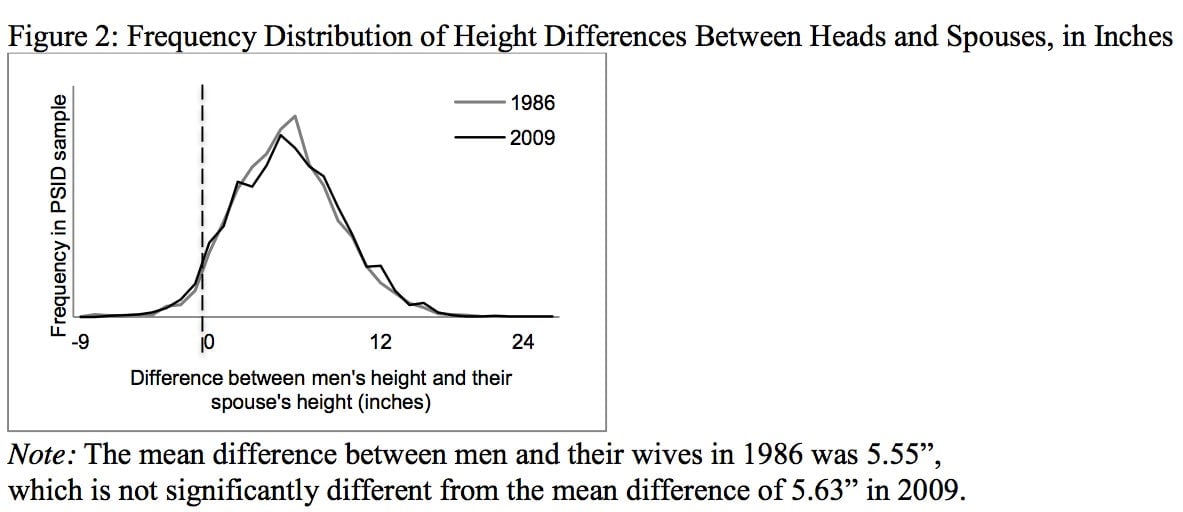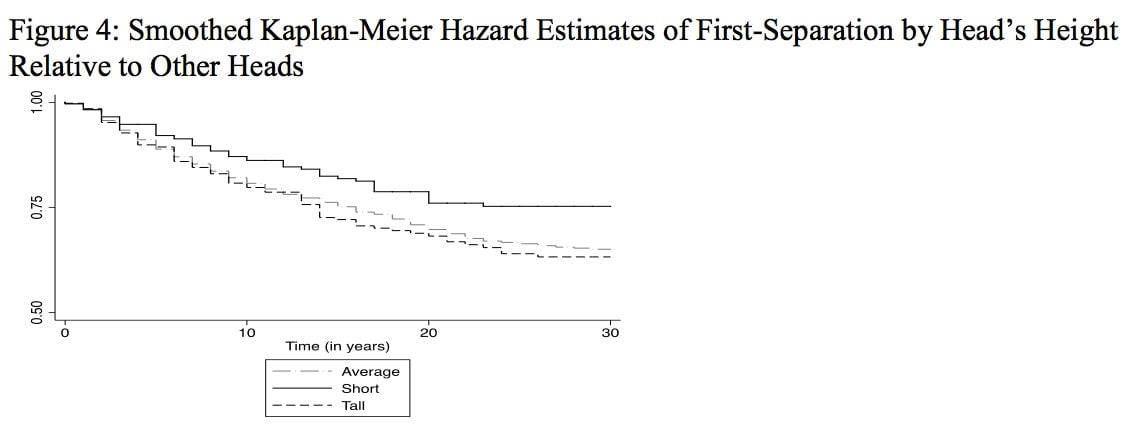Tall men get married earlier, but short men stay married
Height has a substantial effect on career earnings, though researchers are split on whether that’s because tall people are implicitly attractive or whether height signals early nutrition and health. It also has an effect on coupling up, impacting not only who people choose to marry, but also the success of marriages.


Height has a substantial effect on career earnings, though researchers are split on whether that’s because tall people are implicitly attractive or whether height signals early nutrition and health. It also has an effect on coupling up, impacting not only who people choose to marry, but also the success of marriages.
According to a new working paper from sociologists at NYU, short men are more likely to marry lower-educated and much younger women, get married at lower rates, earn more income within a relationship, and tend to have longer lasting marriages. Tall men get married earlier, tend to marry more-educated women, older women, and are more likely to marry someone of their own race.
The differences in how people choose each other are substantial. Short men are 269% more likely to marry someone of the same height than a man of average height, and 1,450% more likely to marry someone taller. Tall men are unlikely to to partner with someone who’s their own height, let alone someone taller.
The trends in spouse’s heights have been remarkably consistent:

Here’s the divorce rate, which is influenced by the fact that shorter men marry less and later:

One potential explanation from the authors is that male height has a high relationship value, associated with attractiveness, masculinity, and status. Persistent historic gender power roles potentially play a role as well.
On the income side, if you think of marriage as a market and tallness as a valuable commodity, short men “make up” for lacking it by earning more money. If you take the model further, the authors write, the results indicate that by “the perspective of relationship exchange models, this indicates that the tallest men exchange their attractive attribute (height) for better-educated spouses, while short men are unable to do so.”
Short men have a 24% lower chance of earning less than their spouse, and are less likely to be equal earners. Each additional inch of individual height for a man is negatively related to proportional income with a shorter spouse.
“This further confirms an existence of height-based status exchange in which short men compensate for their lower physical status with higher proportional earnings, while tall men appear more likely to use their status to attract women with higher relative earnings,” the authors write.
The relationship exchange model is an oversimplification, and discounts the agency of people in general and women in particular—but it illustrates an interesting long-term trend. The data seems to show a lasting influence of historical gender power imbalance, and the persistence of height-hierarchy among men.